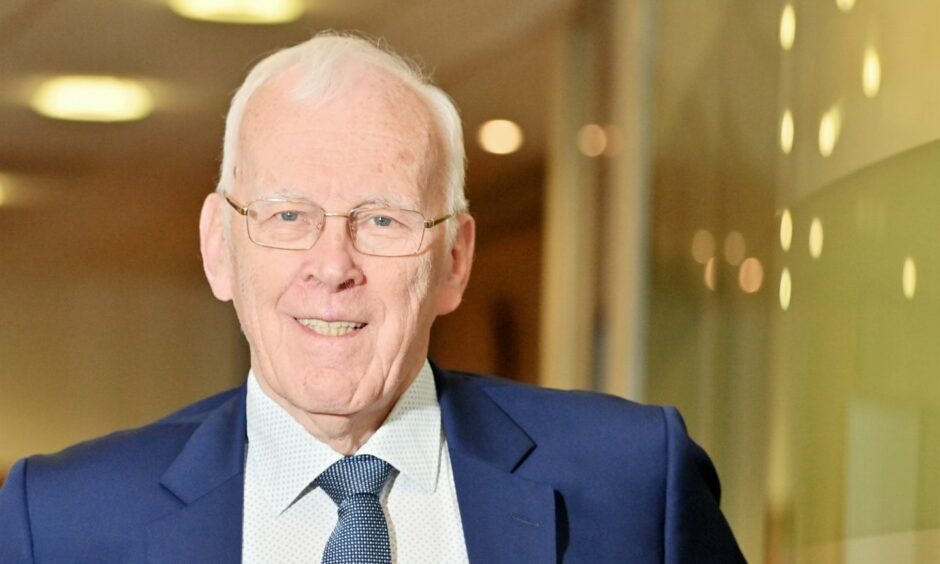Scottish Labour’s annual conference in Glasgow this weekend comes at a time when the party is riding high in the polls.
Despite those successes, the party has also faced heavy criticism in the north-east of Scotland over controversial plans for the energy sector.
All eyes will firmly be on Sir Keir Starmer given it is highly likely he will oust Rishi Sunak from 10 Downing Street at the next Westminster election.
Here are five key questions facing Labour – particularly in the north and north-east – ahead of their major conference.
1.Will controversial windfall tax plans stay?
Sir Keir has had a rocky relationship with the oil and gas industry in the past year over plans to scale back drilling in the North Sea.
Councillor Barney Crockett, a former Labour leader in Aberdeen, even quit the party last June in protest against proposed policies.
But no element of Labour strategy has provoked more anger than recent plans to extend and increase a windfall on excess profits made by fossil fuels firms.
Sir Keir wants to increase the levy on money made by multinational companies from 75% to 78%, and would extend the tax until at least 2029.
Angry business leaders in Aberdeen have slated the idea as analysis by an investment bank warned thousands of jobs could be lost.
SNP Westminster chief Stephen Flynn warned the proposals would “destroy” jobs, even though his party has strongly supported the windfall tax in the past.
Labour bosses have emphasised they have no intention to “turn off the taps” and insist oil and gas production will still play a crucial role in Scotland’s economy.
2. Is the party committed to green jobs in the north-east?
Labour’s windfall tax bombshell came not long after the party announced plans to massively scale back £28 billion investment each year on green jobs.
Instead a government led by Sir Keir will commit £23.7 billion over the course of the next parliament.
That’s of major concern to businesses in the north-east given money will be needed to help oil and gas workers transitioning to the renewables sector.
Scottish Labour chief Anas Sarwar has insisted his party will still invest in green energy jobs despite the major U-turn.
He said on Wednesday a fund for green jobs will remain, while Labour still plans to set up a publicly owned energy company in Scotland.
The Scottish Labour boss also told the Press and Journal that the north-east will be a “world leader” for renewables if Sir Keir is in power.
3. Can Sir Keir Starmer address business fears?
Since becoming Labour leader, Sir Keir has tried to take the party in a more pro-business direction compared to under Jeremy Corbyn.
But those overtures won’t quite be ringing true in the north-east just now given the controversies over energy policy.
Anger over windfall tax plans has resulted in Aberdeen business chiefs, including tycoon Sir Ian Wood, writing to Sir Keir as they plead with him to change course.
It reads: “We cannot overstate the mixture of sadness, frustration and anger – throughout and beyond the energy sector – which has resulted from your announcement.”
Sir Keir has left himself with lots of work to do if he wants to calm the fears of business leaders who fear he is not listening to them.
4. Is Labour divided over the Gaza crisis?
Sir Keir can expect to be greeted by pro-Palestine protesters when he arrives in Glasgow on Sunday for his headline conference speech.
The Labour leader has come in for criticism over his refusal to back a full ceasefire as Israel’s bombing campaign in Gaza continues.
SNP Westminster chief Mr Flynn, an Aberdeen MP, will lead a renewed push next week for Westminster to back calls to bring the conflict to a halt.
Unlike the Westminster group, Anas Sarwar’s Scottish Labour supported a ceasefire in a Holyrood vote last year.
Some Labour politicians, such as North East MSP Mercedes Villalba, have been strongly supportive of Palestine.
5. Can Labour make inroads beyond the central belt?
Just as Labour’s polling has surged in England due to Tory misfortune, so too has the party benefited from SNP dysfunction in Scotland.
Anas Sarwar’s party could be primed to make significant gains from the nationalists north of the border after years of misery.
But will Labour’s success be limited to the central belt, or can they make inroads in Aberdeen or more rural areas of the north and north-east?
The party has historically had some success in Aberdeen, but the Tories have since become the main unionist threat to the SNP across the city.
More success could await Labour in the Western Isles though – where a nationalist split could benefit the party.




Conversation